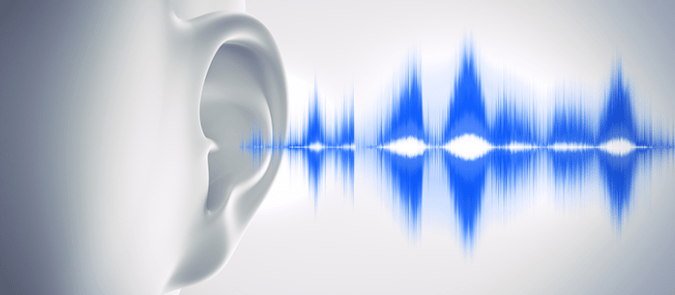Tinnitus

What causes tinnitus?
Tinnitus is not a disease. It is a manifestation of problem in the auditory system, which includes the ear, the auditory nerve that connects the inner ear to the brain, and the parts of the brain that process sound. At times, a small collection of ear wax can also cause tinnitus.
Below are some health conditions which can cause tinnitus:
- Noise induced hearing loss can result in tinnitus
- Ear and sinus infections
- Diseases of the heart or blood vessels
- Ménière’s disease
- Brain tumors
- Hormonal changes in women
- Thyroid problems
- Side effect of some medicines
In older people, tinnitus is the first sign of hearing loss.
Individuals noisy who work in noisy environments such as factory or construction workers, road construction workers, or even musician can develop tinnitus over a period of time as the exposure to extreme noise damages tiny sensory hair cells in the inner ear that help transmit sound to the brain. This is known as noise-induced hearing loss.
Army officials exposed to bomb blasts can develop tinnitus due to sudden and extreme exposure to sound. In fact, tinnitus is one of the most common service-related disabilities among army officials returning from Iraq and Afghanistan.
Pulsatile tinnitus is a rare type of tinnitus that sounds like a rhythmic pulsing in the ear, which is usually aligned with your heartbeat. A doctor makes a diagnosis by pressing a stethoscope against your neck or by placing a tiny microphone inside the ear canal. This kind of tinnitus is most often caused by problems with blood flow in the head or neck. Pulsatile tinnitus also may be caused by brain tumors or abnormalities in brain structure.
Other causes include fatigue, depression, anxiety, and problems with memory and concentration. Having tinnitus is a cause of stress in many of the affected individuals.
What to do if one has tinnitus?
The first step is to see and visit a doctor. Doctor will examine for problems such as ear wax, examines and question about current health, medical conditions, and would try to see if any medications is causing tinnitus.
A detailed examination is done by a ENT specialist who will physically examine your head, neck, and ears and test your hearing to determine whether you have any hearing loss along with the tinnitus.
What to do if sounds in the ear do not go away?
A consultation and visit to the doctor will help you find out ways to reduce the severity of tinnitus. Your doctor may advice certain lifestyle changes, which can help you to reduce the effects of tinnitus.
Treatment for tinnitus
Tinnitus is an incurable condition, but treatment may help to minimize its severity and effects. Most doctors use combination of the treatments to treat tinnitus:
- Hearing aids often are helpful for people who have hearing loss along with tinnitus. A better hearing capability reduces the symptoms of tinnitus
- Counseling is important for as it help patients to understand and learn methods that how to live with tinnitus. Most counseling programs have an educational methodology to help you understand what goes on in the brain to cause tinnitus. Counseling also teaches some self measures that how to deal with tinnitus effectively
- Wearable sound generators are small electronic devices that fit in the ear and use a soft, pleasant sound to help minimize the sounds of tinnitus. This device masks the sounds created by tinnitus with the help of random tones, or music.
- Tabletop sound generators are the devices which are used for relaxation or sleep. Patient can place them near bed, and it plays pleasant sounds such as waves, waterfalls, rain, or the sounds of a summer night. It helps affected people to have good and sound sleep.
- Acoustic neural stimulation is a relatively new technique for people whose tinnitus is very loud or won’t go away. It uses a palm-sized device and headphones to deliver a broadband acoustic signal embedded in music. The treatment modality aims to stimulate change in the neural circuits in the brain, which curbs the effects of the tinnitus.
- Cochlear implants are sometimes used in people who have tinnitus along with severe hearing loss. A cochlear implant bypasses the damaged portion of the inner ear and sends electrical signals that directly stimulate the auditory nerve. The device brings in outside sounds that help mask tinnitus and stimulate change in the neural circuits.
- Antidepressants and antianxiety drugs helps to reduce symptoms of tinnitus
How to prevent tinnitus?
One must refrain from loud noises, as the major cause of noise- induced tinnitus is the exposure to loud noises and sounds. Refrain from loud music of DJ and high noise areas.
Sources:
https://medlineplus.gov/tinnitus.html
https://www.nidcd.nih.gov/health/tinnitus
https://www.ncbi.nlm.nih.gov/pmc/articles/PMC2686891/


